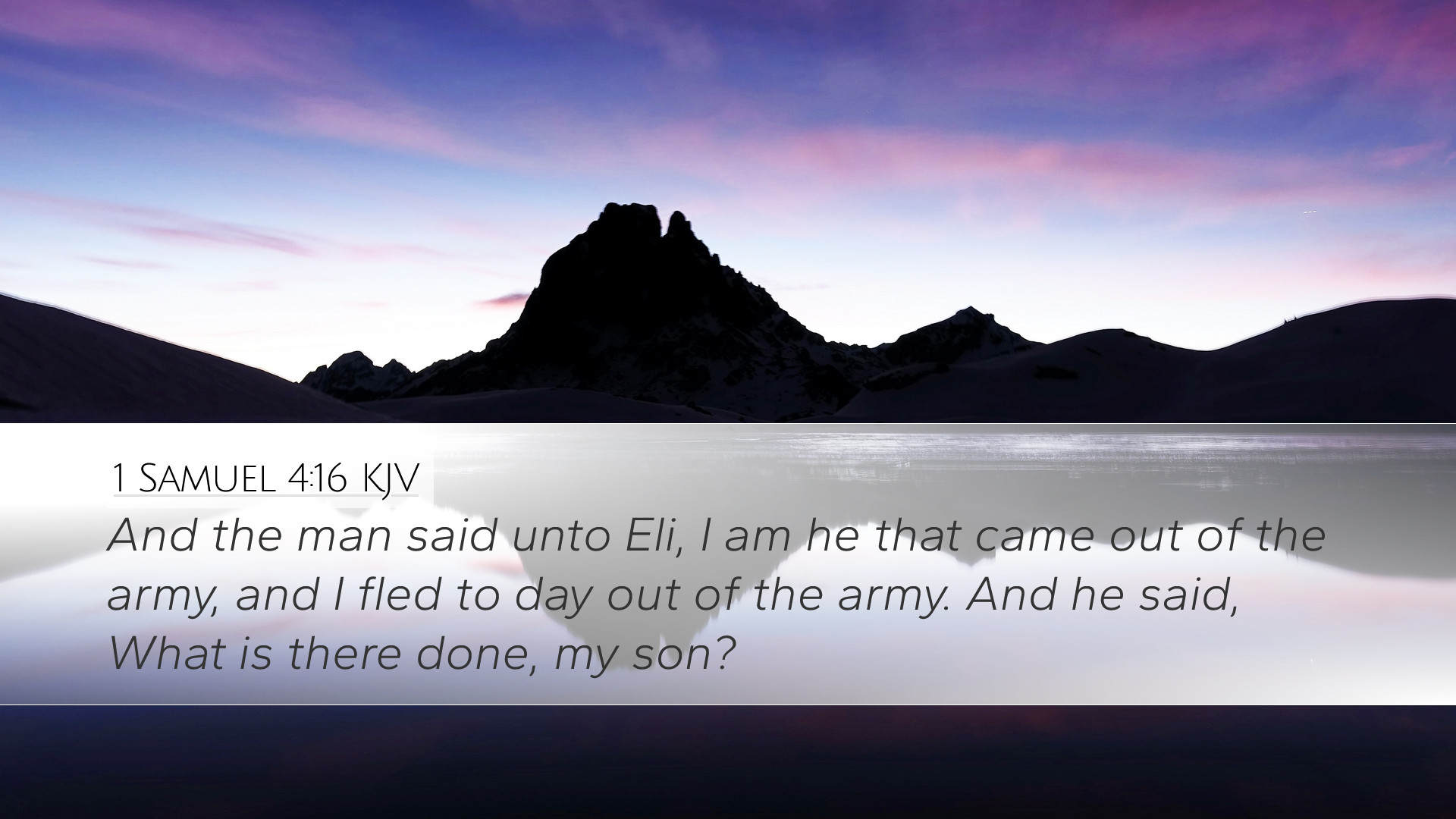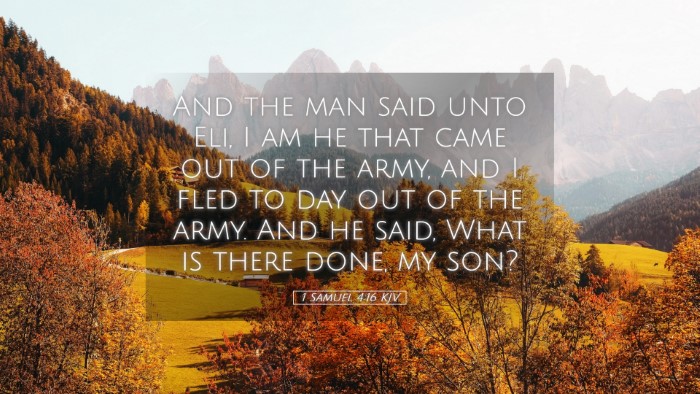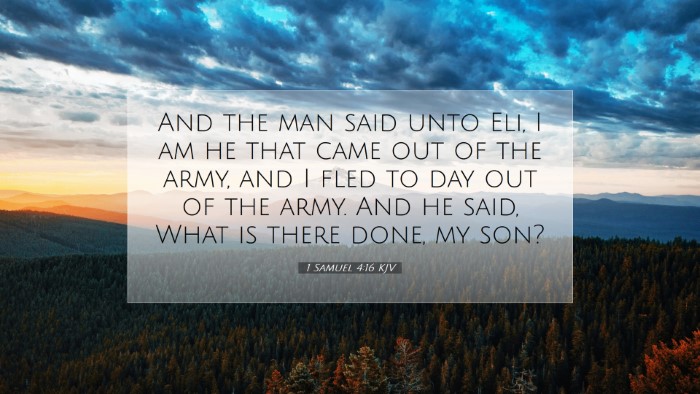Commentary on 1 Samuel 4:16
Text of the Verse: "And the man said unto Eli, I am he that came out of the army, and I fled today out of the army. And he said, What is there done, my son?" (1 Samuel 4:16, KJV)
Introduction
The verse examined here occurs during a pivotal moment in Israel's history when the Israelites suffered a devastating defeat at the hands of the Philistines. This particular passage reflects the gravity of the situation and the profound implications it had for the nation of Israel as well as for the priesthood represented by Eli. The insights compiled from various public domain commentaries provide a deeper understanding of the context, spiritual implications, and lessons that can be derived for contemporary believers, pastors, and scholars.
Contextual Background
The book of 1 Samuel marks a significant transition in Israel's governance, from a theocratic system led by judges to the introduction of monarchy. The Philistine encroachment represents both a political and spiritual crisis for Israel. Eli, the high priest, is an emblem of failing leadership—a theme that resonates throughout this narrative.
Exegesis of the Verse
The messenger's arrival is crucial, as he carries the news of defeat. Matthew Henry emphasizes the gravity of his message: "This man, who fled from the battlefield, became a bearer of a profound sorrow that faced not just the military, but the entire nation of Israel." The phrase "I fled today out of the army" indicates both the chaos of battle and the deep personal impact of the defeat.
Analysis of the Messenger's Role
In his analysis, Albert Barnes points out the significance of the messenger's identity: "The messenger is not merely a soldier but a man who brings news from the front line." His flight signifies not only personal fear but the broader implications of national collapse. The man’s disclosure of his identity to Eli highlights the importance of personal accountability and the burden of leadership in times of crisis.
The Response of Eli
Eli's response, "What is there done, my son?" reveals his paternal concern in light of ancient Israel’s challenges. Adam Clarke notes, "Eli had a vested interest in the outcome of the battle—not just as a priest but as a father." This highlights the blurred lines between personal and national tragedy in biblical narratives. Eli, despite his own failures, is portrayed with a sense of helplessness and concern for his people.
Theological Implications
This passage underscores several theological themes relevant to both ancient and contemporary audiences:
- The Consequences of Spiritual Decline: The Israelite army’s defeat can be seen as a divine judgment against the unfaithfulness of the people and their leaders.
- The Burden of Leadership: Eli's role illustrates the weight of leadership in spiritual matters, which carries consequences for both the leader and the community.
- Hope Amidst Despair: Though the narrative is bleak, it sets the stage for future redemption, as God’s plan continues to unfold even in tragedy.
Lessons for Modern Believers
For pastors, students, and theologians, 1 Samuel 4:16 offers profound lessons:
- Emotional and Spiritual Preparedness: Leaders must be equipped to respond to crises, understanding the spiritual dynamics at play.
- Awareness of Collective Responsibility: The failures of leaders affect not only their personal lives but also the spiritual state of the community.
- Assurance of God’s Sovereignty: Even in defeat, God's purposes remain overarching, reminding believers of resilience and hope.
Conclusion
In conclusion, 1 Samuel 4:16 provides not only a historical recounting of Israel's defeat but also profound spiritual insights. As we reflect on the lessons from Eli and the messenger, we are urged to consider our roles as leaders, the weight of our responsibilities, and the overarching hope we have in our sovereign God. The commentary from Matthew Henry, Albert Barnes, and Adam Clarke collectively reminds us that every biblical narrative carries with it timeless truths relevant to our own faith journeys.


